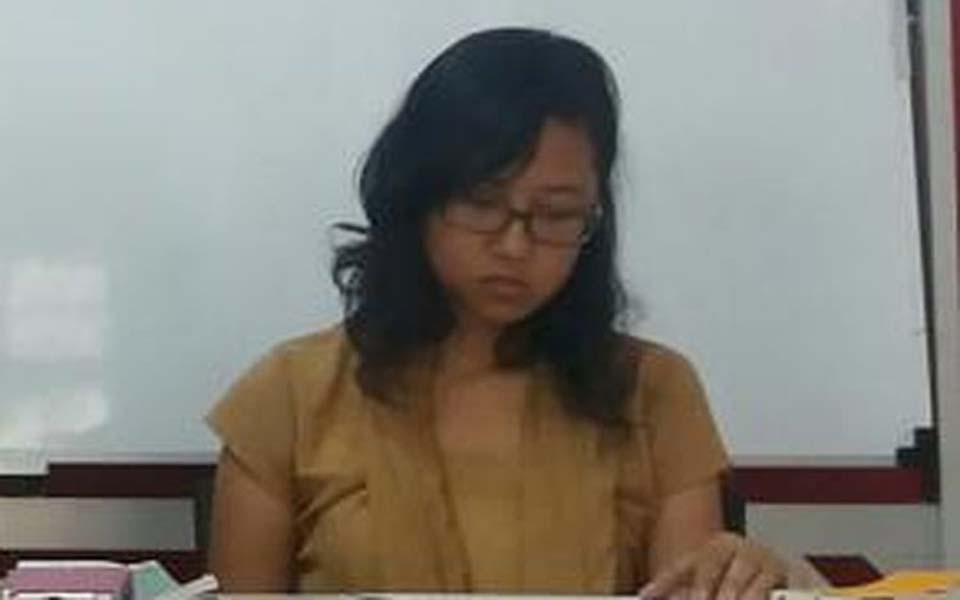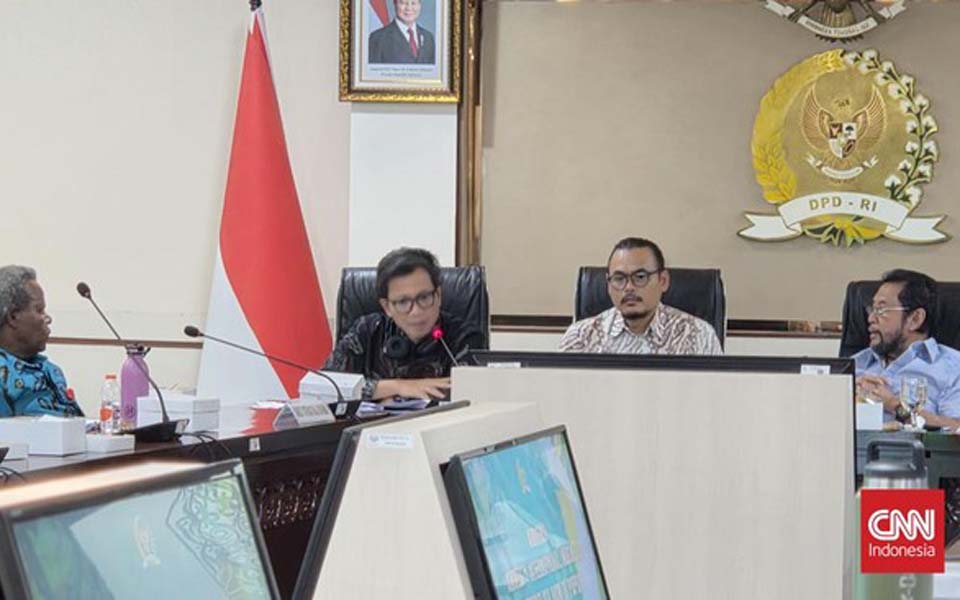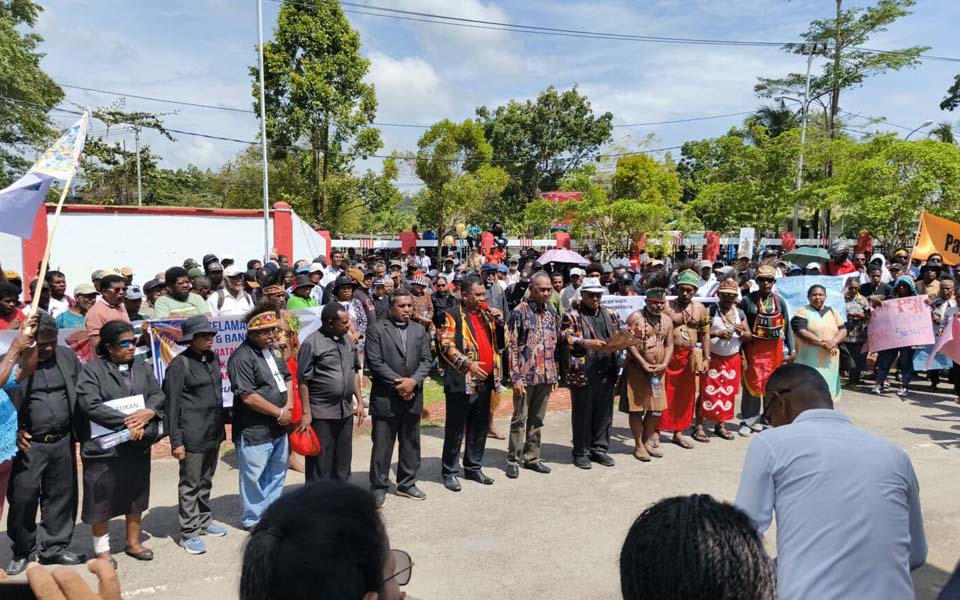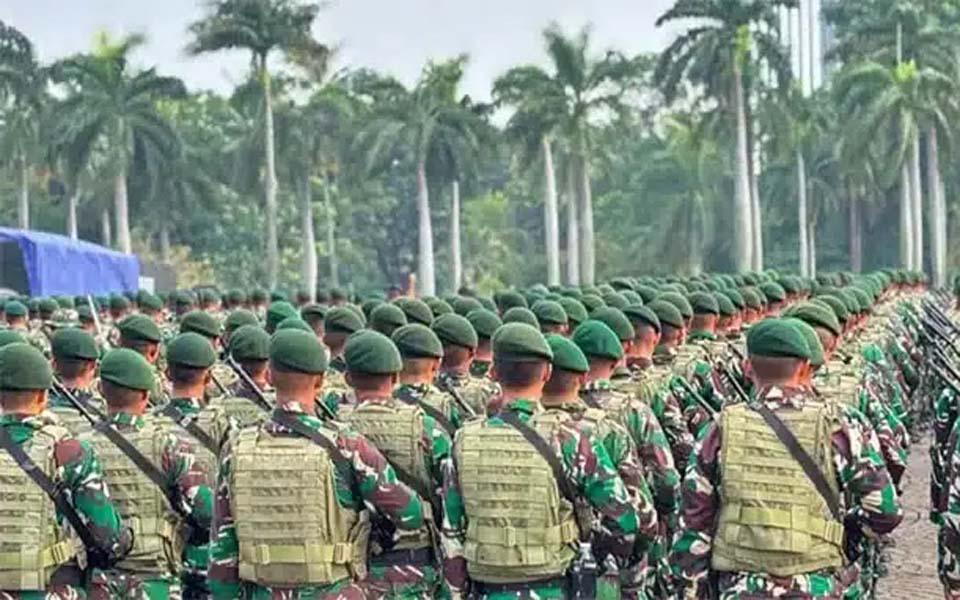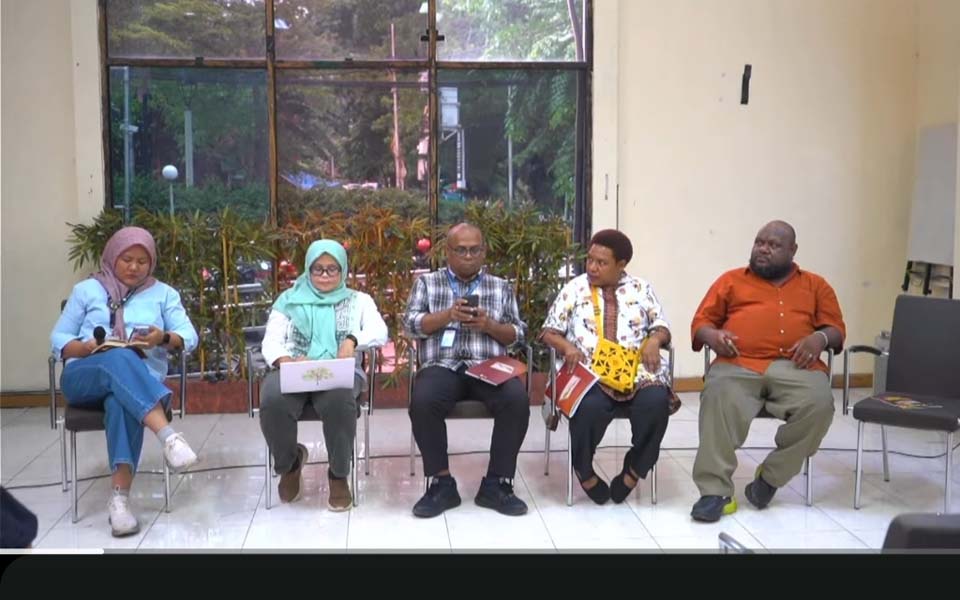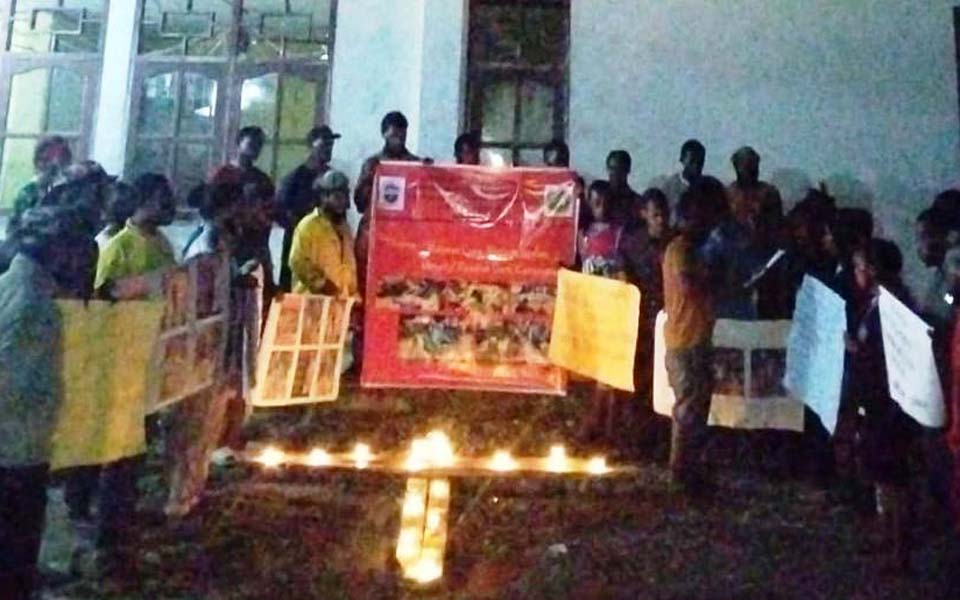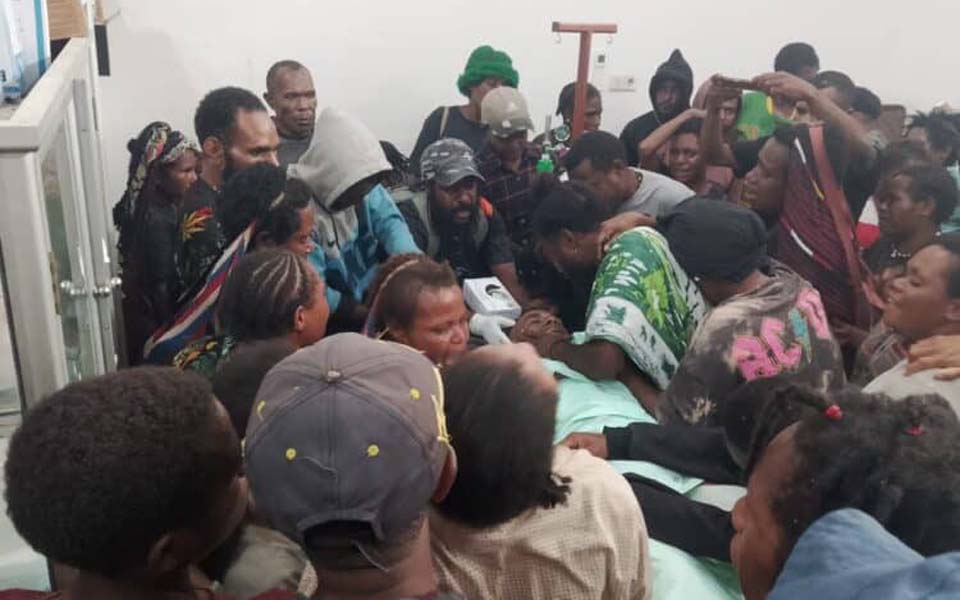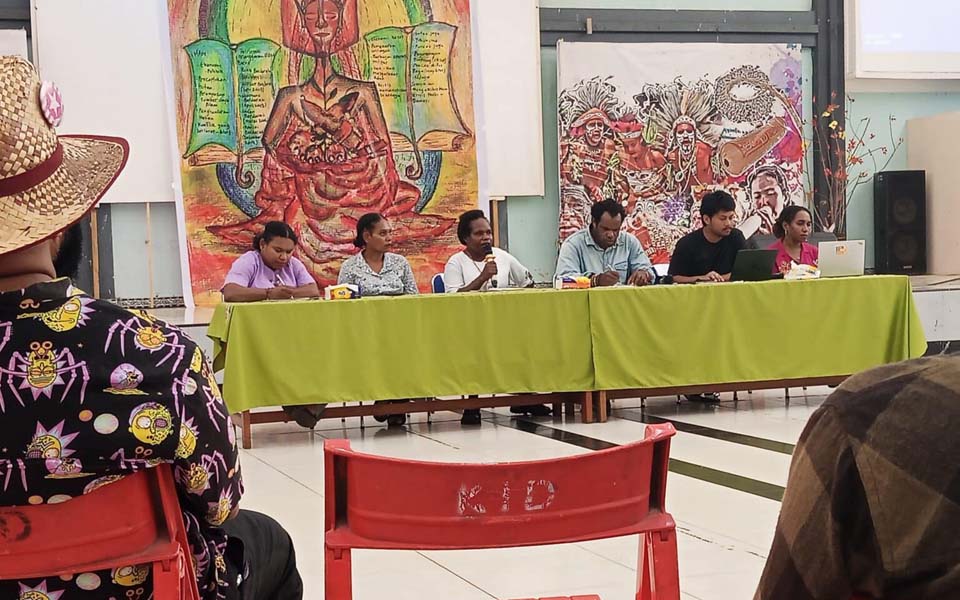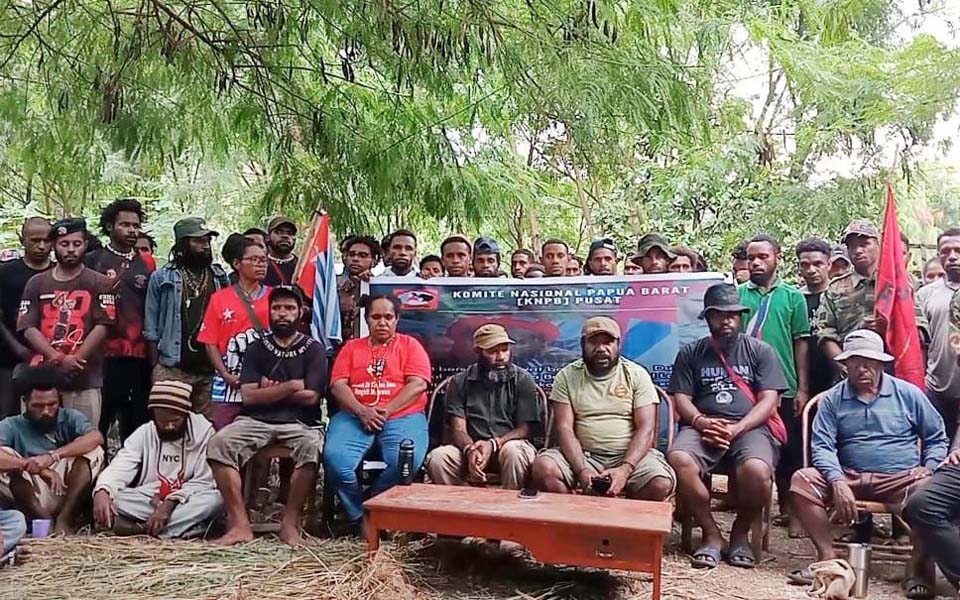Singgih Wiryono, Jakarta – Commission for Missing Persons and Victims of Violence (Kontras) Deputy Coordinator for Advocacy Tioria Pretty says that nationalist policies will not resolve the structural problems in Papua.
This was conveyed when she read out the conclusions reached from a series of Kontras research projects titled "Failing to Address the Roots of the Conflict and the Window Dressing of a Development Illusion".
"There were three conclusions from this research. First, a nationalist policy in Papua will not resolve the structural problems in Papua", said Pretty during a virtual discussion on Friday April 14.
According to Pretty, government policies have in fact reaffirmed the deeply entrenched interests of the central government, not the interests of Papua.
Moreover, the impression is that this agenda has been forced through despite widespread opposition. This is reflected in the waves of protest by indigenous Papuans (OAP), not just in Papua but in other parts of Indonesia.
"The central government's policies in fact have a tendency to be directed towards accelerating this agenda, particularly the exploitation of natural resources and the pretext of stability and security", said Pretty.
In addition to this, according to Pretty, the policy making pattern up until now has in the end resulted in one that appears centralistic, elitist, technocratic and bureaucratic.
"Projects with the label NKRI [the Unitary State of the Republic of Indonesia] is non-negotiable and development for prosperity, have been pushed through by the central government even though they have not had any significant implications for resolving the conflict in Papua", said Pretty.
Kontras is therefore urging President Joko "Jokowi" Widodo and the House of Representatives (DPR) to change the pattern of decision making in Papua, especially those that are strategic in nature.
"Bad patters such as forcing through policies, feeling that they know best, rushed and haphazard [policies] must stop. The government must improve policy implementation in a sincere, open, transparent and accountable manner", said Pretty.
Security approach failure
Kontras also urged the government to halt the security approach being used in Papua. The security approach must stop because it has been proven not to resolve the conflict in the land of the Cendrawasih, as Papua is known.
"The government must evaluate the security policy in Papua and stop using a security approach that has been proven to be totally unsuccessful in resolving the conflict in Papua", said Pretty during the discussion on Friday.
Pretty said that the security approach must be stopped by de-escalating the violence and de-stigmatisation.
The government must withdraw all non-organic troops in Papua, stop the construction of military coordination posts that are not needed and minimalise friction between civilians and the military.
"Counterproductive steps like pinning a terrorist label (on armed groups) must also be stopped. The approach must be changed to a welfare and cultural approach, with the TNI [Indonesian military] and Polri [Indonesian police] not being the main actors", said Pretty.
On the other hand, the government was also urged to ensure that the budget allocation and development in Papua is on target and not misused.
According to Pretty, development in Papua must use other means that are not accompanied by a security approach, saying that a nationalist policy will not resolve the structural problems.
"The pretext of development must really be felt so it benefits and answers the problem of welfare in Papua. Promote the advancement of education without marginalising the people's culture, an exact formulation must be sought", said Pretty.
Past human rights abuses
Kontras is also urging the government to resolve past cases of gross human rights violations in Papua. "The government [must] fully resolve past gross human rights violations in a just manner through prevailing mechanisms", said Pretty.
She said that endlessly delaying this maintains impunity for the perpetrators and only adds to the Papuan people's sense of injury.
According to Pretty, law enforcement must be carried out firmly against human rights violators, including violations against the Papuan people's rights such as racism.
"In addition to this, a human rights court must be formed immediately as an effort to protect, advance and uphold human rights in Papua", she said.
"The government should be open to the widest possible criticisms while opening up the possibility of a settlement in accordance with existing views. Furthermore, the government should also open access to international organisations and journalists to access the situation in Papua independently to find out the latest conditions", said Pretty.
Resistance to the Papua issue being raised in the international community only hurts the Papuan people, especially the victims.
[Abridged translation by James Balowski based on three articles in Kompas.com on April 15. The original title of the lead article was "Kontras: Kebijakan Nasional Tak Selesaikan Masalah Struktural di Papua".]





